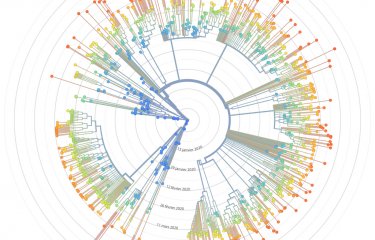The team from the Cochin-Pasteur Clinical Investigation Center of Vaccinology at Cochin AP-HP Hospital, Inserm and the University of Paris, coordinated by Prof. Odile Launay, carried out a systematic review of the literature on immunogenicity and efficacy of Covid-19 vaccines in immunocompromised individuals. It concluded that there is a risk of low immunogenicity of Covid-19 vaccines among immunocompromised people, particularly in solid organ transplant recipients and patients with malignant hemopathies. This work was published on November 17 in the journal Clinical Microbiology and Infection.
Data suggests that Covid-19 vaccines may be less effective in immunocompromised people, who are at high risk for severe Covid-19.
Researchers conducted a systematic literature review of studies of the immunogenicity and efficacy of Covid-19 vaccines in immunocompromised people. They used the Medline and Embase databases, including all publications on the immunogenicity and efficacy of Covid-19 vaccines until August 31, 2021.
Of the 5,917 results initially obtained, 162 studies, including 157 of immunogenicity and 5 of efficacy, were included in the study, grouped by type of immunocompromised population: cancer, hematologic malignancy, solid organ transplantation, autogenous disease. systemic or organ specific immune system, autoinflammatory disease, chronic kidney disease, HIV infection, congenital immunodeficiency, patients on immunosuppressive drugs, systemic corticosteroids, monoclonal antibodies.
The vaccine non-response rate, defined by the absence of anti-spike protein antibodies after complete vaccination, appeared to be higher among solid organ transplant recipients (between 18 and 100%), particularly in lung and kidney transplant recipients. , and patients with hematologic malignancies (14-61%), and appeared lower among patients on dialysis (2-30%) or with solid cancers (2-36%).
In old age, corticosteroids, immunosuppressants and anti-CD20 antibodies were frequently associated with the risk of non-response.
This systematic review highlights the risk of low immunogenicity of Covid-19 vaccines among immunocompromised people, particularly in solid organ transplants and patients with malignant hemopathies. Alternative strategies such as strengthened immunization schedules may be needed.
Source
Immunological and clinical efficacy of COVID-19 vaccines in immunocompromised populations: a systematic review, Clinical Microbiology and Infection, 17 novembre 2021
SimonGalmiche1, Liem BinhLuong Nguyen1, EricTartour2, Xavier de Lamballerie3, LindaWittkop4, PaulLoubet5, OdileLaunay6
1 Assistance Publique – Hôpitaux de Paris (AP-HP), CIC Cochin Pasteur, Hôpital Cochin, Paris, France
2 AP-HP, Immunologie Biologique, Hôpital Européen Georges Pompidou, Paris, France
3 Aix Marseille Université, IRD 190, INSERM 1207, Unité des Virus Emergents, UVE, IHU Méditerranée Infection, Marseille, France
4 Institut de Santé Publique d’Epidémiologie et de Développement, INSERM, Bordeaux Population Health Research Center, UMR 1219, Centre d’Investigation Clinique–Epidémiologie Clinique 1401, University of Bordeaux, Service d’Information Médicale, CHU de Bordeaux, Pôle de Santé Publique, Bordeaux, France
5 INSERM U1047, Department of Infectious and Tropical Diseases, CHU Nîmes, Université Montpellier, Nîmes, France
6 Université de Paris, Faculté de Médecine Paris Descartes, AP-PH, Inserm, CIC Cochin Pasteur, Paris, France
DOI : https://doi.org/10.1016/j.cmi.2021.09.036





